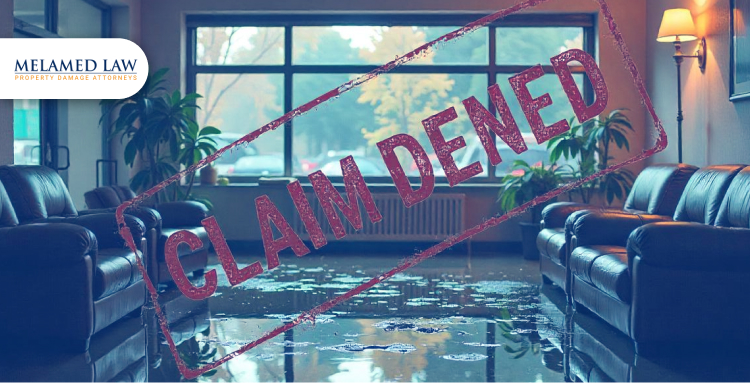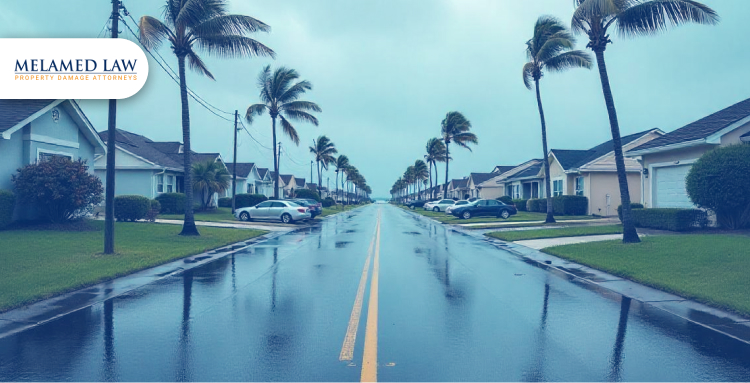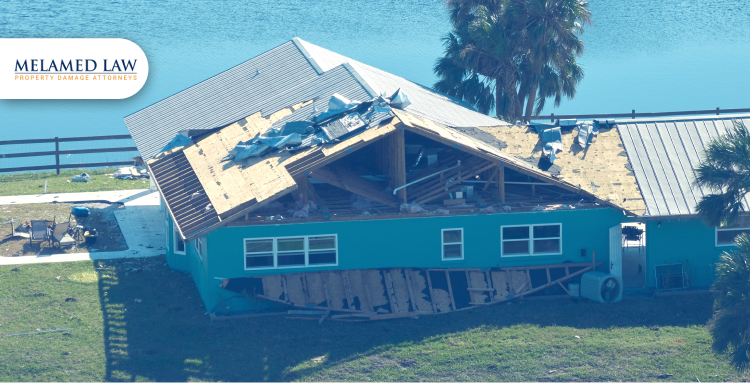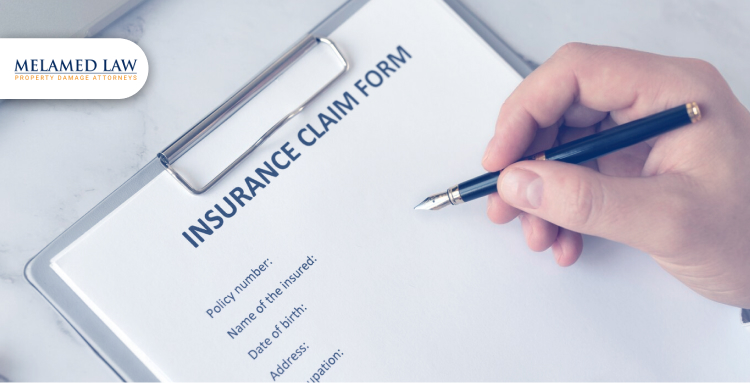
What Are the Most Common Reasons for Residential and Commercial Property Insurance Claim Rejections?
When the unexpected happens, we help individuals and businesses collect the money they deserve for their insurance claims.
business lawsuit
February 5, 2025
What Are the Most Common Reasons for Residential and Commercial Property Insurance Claim Rejections?

Submitting an insurance claim can feel uncertain and nerve-wracking, especially when your peace of mind depends on the outcome. You follow every step carefully, trusting the process, only to face the dreaded message: claim denied. What went wrong? Could this have been avoided?
Insurance companies often rely on strict rules and fine print that can catch anyone off guard. Even the smallest mistake could jeopardize your rightful benefits. Let us pull back the curtain, reveal the common obstacles, and equip you with strategies to protect what matters most. This is your guide to beating the odds and ensuring your claim succeeds.
1) Why Claims Get Rejected
Knowing why insurers reject claims helps you avoid mistakes and improves your chances of success. Here is a clear breakdown:
Incomplete or Incorrect Information
Errors or missing details in forms often cause insurers to deny claims. This results in delays or outright rejection, leaving you without compensation.
For more information on how to avoid common insurance mistakes, visit Consumer Financial Protection Bureau (CFPB) - Insurance.
Policy Exclusions
Claims for events excluded from your policy, like flood damage under a standard homeowner’s policy, are rejected. This leaves you responsible for costs. You can learn more about insurance exclusions and how to avoid surprises at the Federal Insurance Office (FIO).
Lapsed Policy
If your policy lapses due to unpaid premiums, insurers deny claims. This means you lose coverage when you might need it most.
Delayed Claim Filing
Claims submitted after Florida’s legal deadlines are automatically denied. Missing these deadlines can result in forfeited benefits, no matter the situation.
Fraud or Misrepresentation
Providing false information leads to claim rejection and may result in legal consequences, including fines or policy cancellation.
Pre-Existing Conditions
Claims for issues that existed before your policy began are rejected for violating terms, leaving you to bear the financial burden.
Not Meeting Deductibles
Submitting claims below your policy’s deductible leads to denials, meaning you won’t receive reimbursement for those losses.
Violation of Policy Terms
Using your policy outside its coverage, like a personal auto policy for business use, results in denied claims and potential penalties.
Insufficient Evidence
Without enough proof, like photos or receipts, insurers cannot verify your claim, often leading to rejection. This can delay or nullify payouts.
Policy Coverage Limits
Submitting claims that exceed your policy’s coverage limit results in partial payouts, leaving you to cover the remaining costs. By understanding these common issues, you can submit stronger claims and increase your chances of approval. Always review your policy and act quickly when filing.
2) Real-Life Examples of Insurance Claim Rejections

Let’s explore a few real-life scenarios that highlight why claims get rejected. These examples can help you avoid common challenges.
Example 1: Missing Documents in a Car Accident Claim
James, a Florida resident, filed a claim after a car accident on I-95. He did not include the required police report. The insurer denied his claim because Florida law mandates a police report for accidents involving injuries or significant damage. By submitting all necessary documentation up front, James could have avoided rejection.
Example 2: Filing a Late Hurricane Damage Claim
Maria experienced roof damage during Hurricane Ian. She waited six months before filing her claim, assuming the damage was minor. Under Florida law, homeowners must file property damage claims within specific timeframes. The insurer rejected her claim due to the delay. Timely filing could have ensured Maria’s coverage. For guidelines on filing insurance claims, check USA.gov - Filing Insurance Claims.
Example 3: Health Insurance Claim Denied Due to Misrepresentation
Samantha applied for health insurance in Orlando but did not disclose her diabetes. When she needed insulin coverage, the insurer denied the claim. Florida insurers can reject claims if a policyholder fails to provide accurate health information during application. Full disclosure during enrollment would have helped Samantha secure coverage.
Example 4: Excluded Coverage in a Business Insurance Claim
John, a restaurant owner in Tampa, filed a claim for food spoilage caused by a power outage. His business policy excluded coverage for off-premises power failures. Since his insurer followed Florida’s strict policy exclusion laws, they denied the claim. Reviewing policy terms thoroughly would have alerted John to this exclusion.
Example 5: Inadequate Proof of Flood Damage
After a flood in Miami, Carlos filed a claim for damages to his home. He only submitted a few photos as evidence. Florida insurers often require comprehensive proof, such as repair estimates or contractor reports. The lack of sufficient evidence led to rejection. Providing detailed documentation could have improved his claim’s success.
Takeaway
These stories reveal how even the smallest mistakes can spark unexpected challenges, leading to remarkable journeys of resilience and triumph.
3) How to Avoid Claim Rejections

To prevent insurance claim rejections, take these proactive steps:
Double-check the information before submitting
Make sure all claim forms are accurate. Correct any errors or omissions before submitting to avoid delays or rejections.
Understand your policy terms and exclusions
Carefully review your policy to fully understand coverage limits, exclusions, and conditions. Knowing these details helps prevent surprises during the claims process.
Pay premiums on time
Keep your premiums current. Missing payments can cause your policy to lapse, making your claim invalid.
File claims promptly
Submit your claim as soon as possible. Most policies set a deadline for filing claims, and missing that window can lead to a rejection.
Keep all evidence and documents organized
Ensure that you collect all relevant evidence, such as photos, receipts, and reports. Proper documentation is crucial for supporting your claim.
Seek professional help if needed
When in doubt, consult an insurance agent or claim consultant. They can guide you through the claim process and reduce the risk of mistakes.The National Association of Insurance Commissioners (NAIC) is an excellent resource for understanding your rights and getting professional advice.
4) Importance of Professional Assistance
When dealing with complex insurance claims, professional assistance is so important. Insurance agents, legal experts, and claim consultants play key roles in ensuring you have the support you need.
Insurance Agents
Insurance agents help you understand your policy’s terms. They ensure you know your coverage and what is excluded. By providing clear guidance, they can help prevent claim errors and improve your chances of approval.
Legal Experts
Legal experts are invaluable when your claim involves legal complications, such as disputes or misunderstandings with your insurer. They explain your rights and help you handle the complex legal aspects of insurance claims. If your claim is denied, a lawyer can offer advice on how to challenge the decision.
Claim Consultants
Claim consultants specialize in reviewing claims to ensure everything is in order. They organize documentation and verify that all necessary evidence is included. By providing expert insights, they can significantly increase your chances of having your claim approved.
5) Frequently Asked Questions (FAQs)

What happens if my claim is rejected?
If your claim is rejected, carefully review the denial notice. Understand the reason and see if you can correct the issue or appeal.
Can I appeal an insurance claim rejection?
Yes, most insurers allow you to appeal a rejection. Gather supporting evidence and file your appeal within the time limit specified.
How can I ensure my claim is approved?
Ensure accuracy in your submission, understand your policy, and submit all required documents. Staying proactive and organized helps improve approval chances.
6) How Melamed Law, PLLC Can Help with Insurance Claim Rejections
If your insurance claim has been rejected, we offer specific solutions to address each problem under Florida law:
Correcting Inaccurate Information
We will carefully review your claim and identify any errors. Then, we will help you submit the corrected information promptly.
Challenging Policy Exclusions
If your claim was denied due to exclusions, we will analyze your policy’s language and determine if the denial was lawful. We’ll work to negotiate a resolution.
Meeting Filing Deadlines
If you missed a filing deadline, we will explore Florida’s grace periods and exceptional circumstances to appeal the denial effectively.
Defending Against Fraud Claims
If your insurer accuses you of fraud, we will gather the necessary evidence and present a strong defense to protect your rights.
Addressing Pre-Existing Condition Denials
We will thoroughly review your records and insurance policy to identify any errors and work on filing an appeal.
Recent Cases















